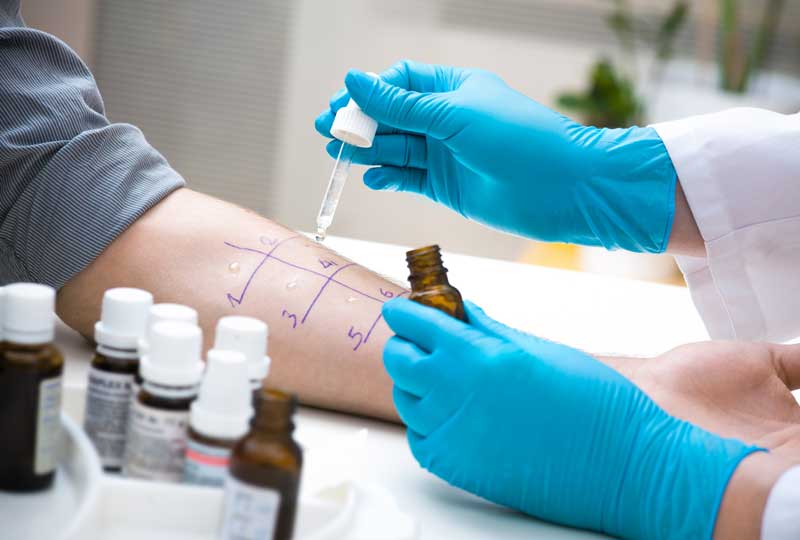Learn the steps of skin and blood testing for allergies and the benefits.
Allergies can cause all sorts of unpleasant symptoms, from itching to congestion. They can make you feel unwell, interrupt your sleep and even make it hard to concentrate. That’s why figuring out if your symptoms are related to allergies — and if so, what you’re allergic to — is so important. Allergy testing helps you pinpoint your triggers and helps you and your doctor figure out an action plan to treat and even prevent symptoms before they strike.
We asked Basil Kahwash, M.D., of the Vanderbilt Asthma, Sinus and Allergy Program, to explain what allergy testing entails.
Two kinds of allergy testing
You might undergo skin testing or blood testing for allergies. “Most of us prefer skin testing when possible,” Kahwash said, “because it’s more accurate and we get the results within minutes.”
Prior to skin testing, you must abstain from antihistamines for five days, otherwise your test will be inaccurate. “The whole point of the medication is to block the allergic reaction,” Kahwash explained, “so it’s going to block the results of the test as well.” For this reason, some patients prefer to be tested when it’s not during a peak allergy season for them. However, you can be tested at any time of year, Kahwash added.
Allergy skin testing
One benefit of skin testing is that there’s no needle involved. First, your provider will scratch your skin with a positive control and a negative control. “Then we scratch it with several different environmental allergens,” Kahwash said. “Those are going to include several outdoor pollens and indoor allergic triggers — things like cat, dog, and dust mites.”
You’ll wait about 15 minutes for the results to appear. Potential allergens that you are allergic to will create a small welt. Your provider will then compare the results to the positive and negative controls. “If there’s no reaction — no appearance of a bump that looks like a mosquito bite where we scratch your skin,” Kahwash explained, “then you’re probably not allergic.”
If you do have a reaction, your skin will feel a bit itchy. Your provider can offer a topical medication to calm the irritation after the test is read.
Blood testing for allergies
Blood testing involves drawing a small amount of blood. The sample is then tested for various antibodies to certain allergens. “Some patients can’t be skin tested,” Kahwash said, “either because they have skin conditions that don’t permit them to be tested or because they’re unable to stop antihistamines.”
Blood testing can also be helpful in cases where a skin test appears unreliable, for example if a patient’s skin doesn’t even react to the positive control. But Kahwash said those are rare instances.
Benefits of allergy testing
Avoiding triggers is one of the biggest benefits to allergy testing. For example, if you’re thinking about getting a cat and suspect you might be allergic but aren’t sure, it’s helpful to find out before bringing one into your home.
Additionally, allergy testing can clue you in to which seasons have the most impact on you. “If you’re only allergic to grasses,” Kahwash explained, “you’re only going to have allergy symptoms during certain periods of the year. And you can prevent those by taking medications during that time of year.” Plus, some allergy medications have the best impact when begun in the weeks leading up to the season start. Allergy testing can help you pinpoint when you need to take them.
Finally, if you’re considering allergy shots, which is a way to desensitize you to your allergens over time, you need to undergo allergy testing. “We need to know what it is that you’re allergic to and therefore what it is that you need to be desensitized to,” Kahwash added.

Need help?
Considering allergy shots or getting tested for allergies? Visit the Vanderbilt Asthma, Sinus and Allergy Program for an evaluation and the most up-to-date treatment recommendations. Call 615-936-2727 for an appointment.

